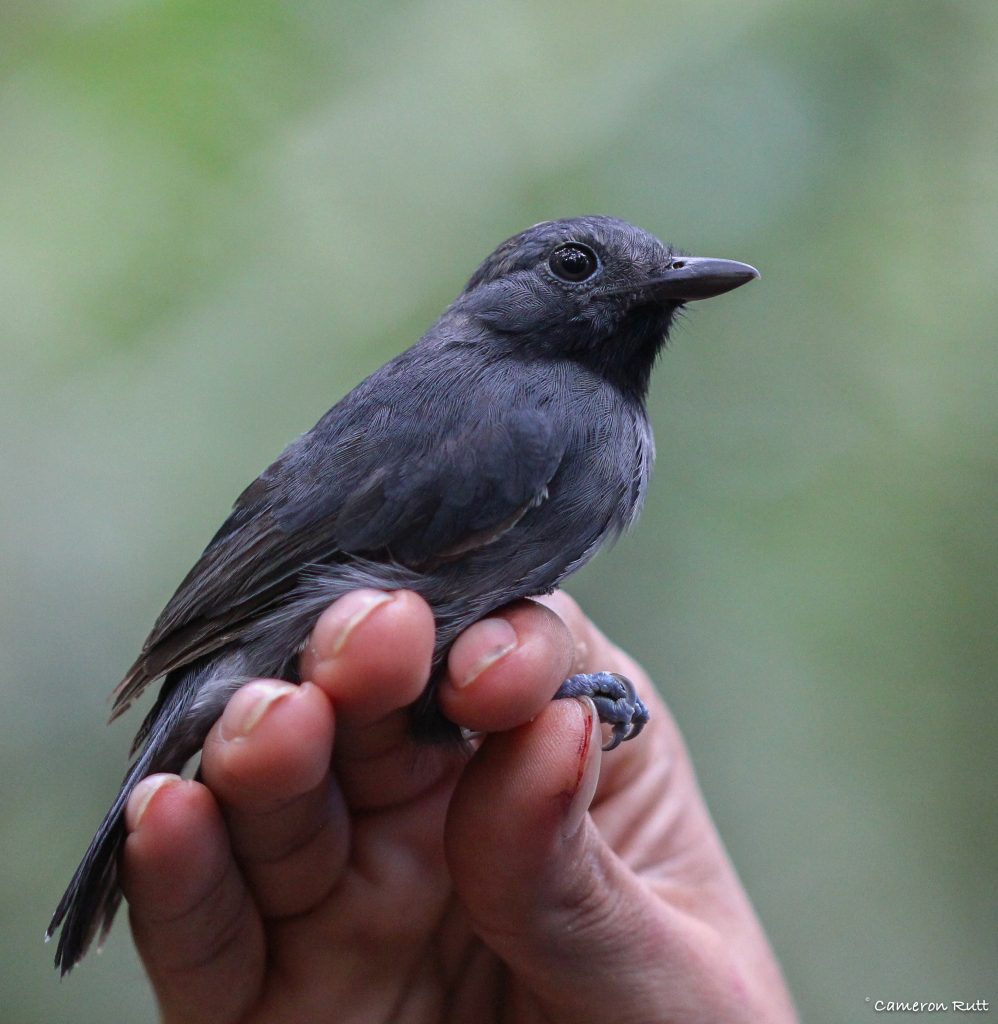
When you’re vulnerable to predators it pays to stick together and have a good lookout to warn you of danger.
The dusky-throated antshrike (Thamnomanes ardesiacus) doesn’t look important but he’s quick to notice the presence of hawks and falcons and has a distinctive alarm call that wakes up the forest to impending danger. It turns out that he’s key to the foraging location and cohesion of his mixed species flocks in the Amazon.
Early this year, a study by San Francisco State University temporarily removed dusky-throated antshrikes from their mixed species flocks in Peru. They discovered that within hours the flocks left their semi-open mid-story locations for denser parts of the forest. Often the flocks without an antshrike completely dissolved.
What does the alarm call sound like? Is it loud? Does it grab your attention? You bet! Here’s the sound of a worried dusky-throated antshrike:
His role in the flock works so well that the same mix of species sticks together for generations. As San Francisco State Professor Vance Vredenburg remarked, “You come back to the same habitat after 20 years, and the same flocks are using the same areas of the forest.”
Read more about the study here in Science Daily.
p.s. When the antshrike is not afraid he sings this buzzy, rising song. (audio by Peter Boesman at Xeno Canto #271766)
(media credits: photo of dusky-throated antshrike by Cameron Rutt, audio alarm call from Macaulay Library, audio song from Xeno Canto; click on the captions to see the originals)
Hi Kate,
Different subject that I am sure you have covered sometime in the past.
That is seeing Bats in winter.
Yesterday I was raking leaves and it was starting to get pretty dark. As you know it was pretty warm yesterday. Well just as I was finishing up I heard a high pitched bird like noise overhead. I looked up and saw two bats! I had never seen bats in December before! I guess they felt it was well enough to come out of hibernation for a day and scoop up some yummy insects.
So do we know what bats hibernate and what ones migrate? Or is that no so simple of a science for bats?
Gene, I have seen a pair of bats in late afternoon too, though my experience was in a park in Kutztown, PA on the Sunday after Thanksgiving, Nov 25. I don’t know much about bats but it seemed odd to me … except that there were a lot of of bugs out that day. I’ll try to find out more … but maybe it’s a situation that’s in flux because of climate change or disease so not easy to answer.